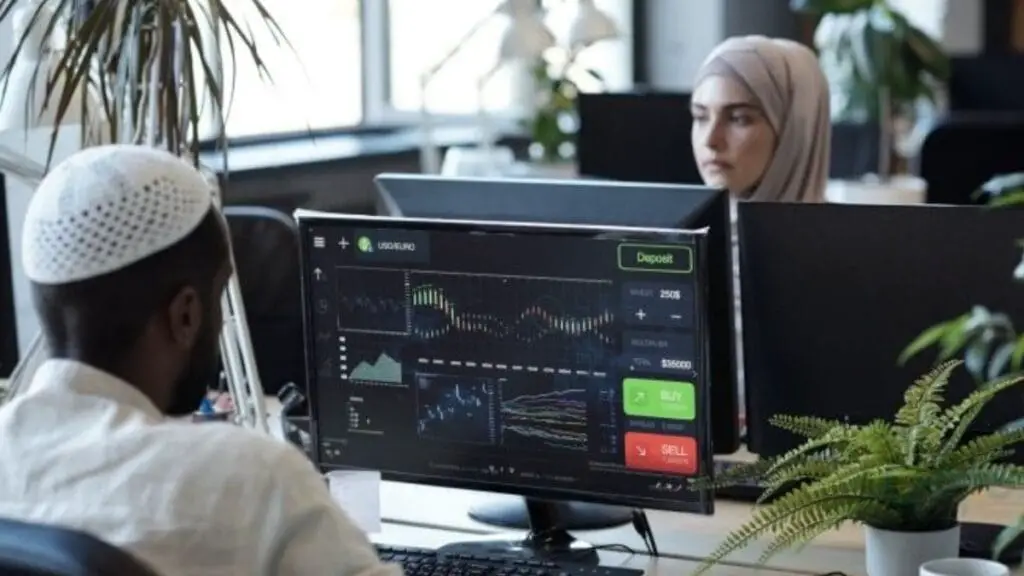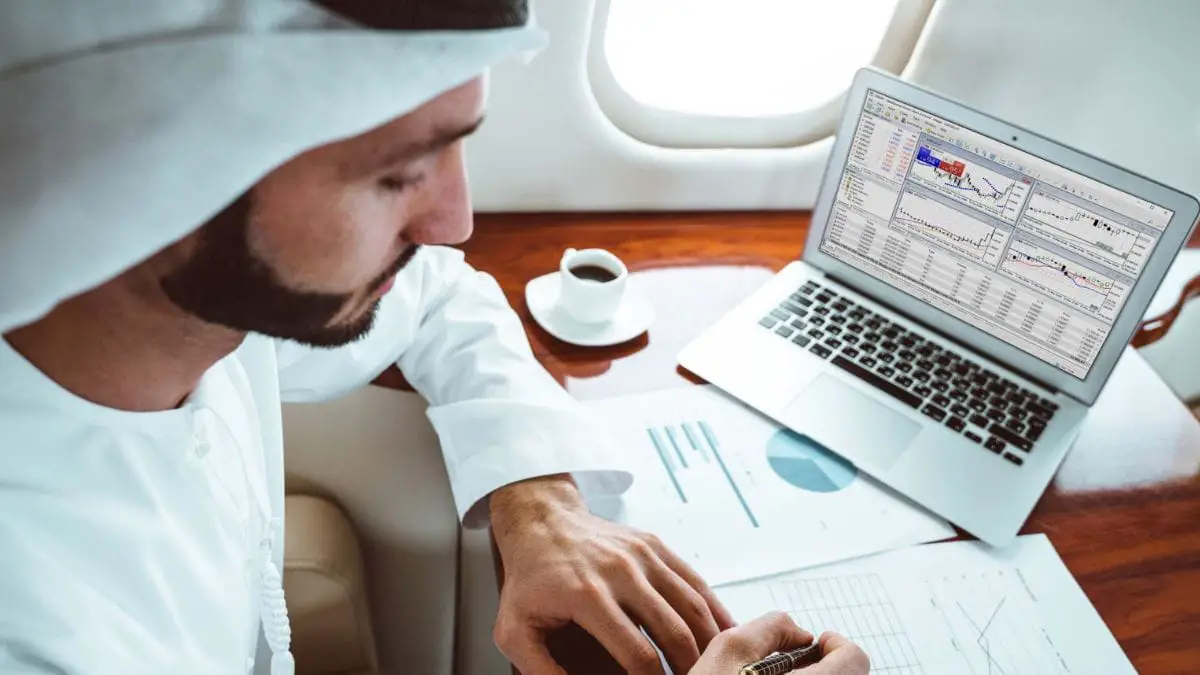Forex trading is a global financial market where individuals and institutions buy and sell currencies with the aim of making a profit. This practice has gained popularity worldwide, but a crucial question often arises among Muslims: Is Forex trading halal or haram in Islam?
Understanding the principles of Islam when it comes to finance is essential to answering this question. This article dives deep into the topic to provide clarity on whether Forex trading aligns with Islamic teachings or not.
Understanding Forex Trading
What is Forex?
Forex, or the foreign exchange market, is the world’s largest financial market, where traders exchange one currency for another. The primary goal of Forex trading is to profit from fluctuations in exchange rates between currencies like the US Dollar (USD), Euro (EUR), and British Pound (GBP).
How Does Forex Trading Work?
Forex trading operates 24 hours a day, five days a week, allowing traders to make transactions at almost any time. Traders use platforms to speculate on whether a currency will increase or decrease in value compared to another currency, making profits from favorable movements.
Why Do People Engage in Forex Trading?
Many are attracted to Forex trading due to its liquidity, flexibility, and potential for significant profits. However, it’s also a high-risk venture, where significant financial losses can occur if one is not cautious.
Is Forex Trading Halal or Haram
Key Islamic Financial Principles
Islamic finance is governed by Shariah law, which emphasizes fairness, risk-sharing, and ethical investments. Transactions that involve unfair advantages or exploitation are considered haram (forbidden).
The Concept of Riba (Interest) in Islam
One of the primary concerns in Islamic finance is Riba, which refers to any guaranteed interest on a loan or investment. Riba is strictly prohibited in Islam, as it promotes unjust gains and financial exploitation.
The Importance of Risk and Profit-Sharing in Islam
Islam encourages a balance of risk and profit-sharing in financial ventures. Investments should have a clear outcome, with all parties understanding the risks involved.
Ethical Considerations in Islamic Finance
Ethics play a vital role in Islamic finance, and any form of deception, fraud, or excessive speculation (Gharar) is prohibited. Financial transactions must be clear and transparent.

Forex Trading: Halal or Haram?
Forex and Speculation (Gharar)
One of the key issues in Forex trading is speculation, which can be likened to gambling. Excessive uncertainty and high-risk bets are discouraged in Islam, as they contradict the principle of informed risk-taking.
Is Forex Considered Gambling in Islam?
Gambling, or Maysir, involves taking risky bets with uncertain outcomes. Many Islamic scholars argue that speculative Forex trading, which is purely based on chance, resembles gambling and is therefore haram.
The Role of Riba in Forex Trading
Interest, or Riba, comes into play in leveraged Forex trading, where traders borrow money to increase their potential profits. This is a contentious issue, as it involves paying interest on borrowed funds, which is not permissible in Islam.
Leveraged Trading in Forex and Its Implications
Leveraged trading allows traders to control larger positions than their actual funds would allow. However, the interest charged on leverage raises concerns about its permissibility.
The Concept of Margin Trading in Islam
Margin trading, where a trader only puts down a fraction of the trade’s value, involves a degree of risk that some scholars consider too uncertain, potentially violating Islamic principles of fair trade.
You Might Like This: AI Integrated Smart Crypto Wallet: My Personal Insights on Its Potential
Different Perspectives on Forex Trading in Islam
The Halal Perspective: Arguments For
Currency Trading as a Legitimate Business
Some scholars argue that Forex trading can be halal if conducted ethically. Trading currencies for legitimate purposes, such as international trade or investment, can be permissible.
Permissible Trading Conditions
If Forex transactions are free of Riba, speculative gambling, and excessive uncertainty, they may be considered halal. Transparency and clear agreements are crucial.
The Haram Perspective: Arguments Against
The Issue of Speculative Trading
High-risk speculation, which is common in Forex, goes against the ethical principles of Islam. It is seen as too uncertain and resembles gambling.
The Problem of Riba in Leveraged Forex
The use of interest in leveraged trades makes many scholars classify Forex as haram. Even a small element of Riba can render a transaction non-permissible.
Risk and Uncertainty in Forex Deals
Unpredictable market fluctuations make Forex trading a risky venture, which raises concerns about its permissibility in Islam.
What Islamic Scholars Say About Forex Trading
Scholars Who Believe Forex is Halal
Some scholars argue that if Forex is conducted within specific guidelines, avoiding interest and speculative risks, it can be a permissible form of trade.
Scholars Who Believe Forex is Haram
Many scholars oppose Forex trading due to the inherent risks, speculative nature, and the involvement of interest. They advocate for caution and adherence to Islamic financial principles.
Fatwas Issued on Forex Trading
Different fatwas (Islamic legal rulings) have been issued on Forex trading, reflecting diverse opinions based on interpretations of Islamic law.

Conditions for Halal Forex Trading
Avoiding Riba in Forex Deals
To ensure a halal Forex transaction, traders must avoid any form of interest payments or gains.
Ensuring Transparency in Transactions
Clear and transparent agreements between trading parties are essential for maintaining halal status in Forex deals.
Following Islamic Financial Guidelines
Adhering to Islamic finance principles is necessary for a permissible trading environment, including fair risk-sharing and ethical practices.
You Might Like This: The Ultimate Guide to Managing Your, Gomyfinance Bills
Islamic Forex Accounts
What are Islamic Forex Accounts?
Islamic Forex accounts, also known as swap-free accounts, are specifically designed to comply with Shariah law by eliminating interest payments.
How Do Islamic Forex Accounts Work?
These accounts operate without charging or paying interest on overnight positions, making them suitable for Muslims.
Benefits of Using Islamic Forex Accounts
Islamic accounts allow Muslims to participate in Forex trading without violating religious principles. They focus on ethical and transparent trading.
Limitations of Islamic Forex Accounts
While Islamic Forex accounts address some concerns, issues related to speculation and risk can still be problematic.
How to Trade Forex in a Halal Way
Practical Tips for Halal Forex Trading
- Avoid leverage to eliminate interest-related issues.
- Focus on long-term investments rather than speculative trading.
- Use Islamic Forex accounts to stay compliant.
Choosing the Right Broker
Selecting a broker that offers Islamic accounts and adheres to ethical trading standards is crucial for halal Forex trading.
Importance of Proper Knowledge in Forex Trading
Understanding the complexities of Forex is necessary for making informed and halal trading decisions. Proper knowledge reduces risks and ensures adherence to Islamic principles.
The Future of Forex in the Islamic World
Increasing Popularity of Islamic Forex Accounts
As awareness grows, more Muslims are opting for Islamic Forex accounts, reflecting the desire to invest ethically.
Shariah-Compliant Financial Solutions
Financial institutions are developing Shariah-compliant solutions to cater to the Muslim market, enhancing accessibility to ethical investments.
Potential Growth of Forex in Muslim Countries
With proper regulation and Shariah-compliant options, Forex could become a significant market in predominantly Muslim countries.
Conclusion
The question of whether Is Forex trading halal or haram in Islam does not have a simple answer. It heavily depends on how trading is conducted and the specific conditions followed.
For Muslims, understanding Islamic finance principles is essential before engaging in Forex trading. Making informed and responsible financial choices will ensure alignment with religious beliefs.
FAQs
Is Forex Haram if Done Without Leverage?
Forex without leverage can be considered halal if it avoids speculative practices and adheres to ethical guidelines.
What is the Difference Between Regular and Islamic Forex Accounts?
Islamic accounts eliminate interest charges and focus on ethical trading, while regular accounts often involve interest.
Can Muslims Trade Forex as a Full-Time Profession?
Yes, if done ethically and in compliance with Islamic principles, Forex can be a profession for Muslims.
Are There Halal Alternatives to Forex Trading?
Yes, Muslims can explore other halal investments like real estate, stocks, and Shariah-compliant mutual funds.
Is It Halal to Use Automated Forex Trading Software?
Automated trading can be halal if it follows ethical guidelines and avoids speculative behaviors.


